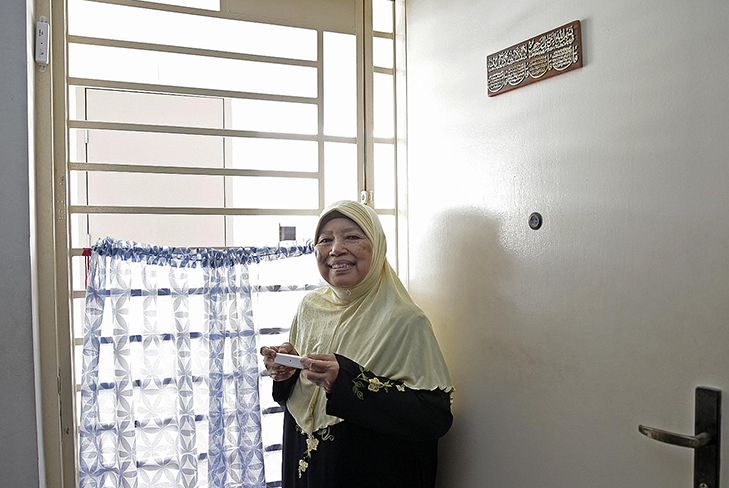
SHINESeniors is an ongoing study led by researchers from the SMU–Tata Consultancy Services (SMU-TCS) iCity Lab in collaboration with the Agency for Science, Technology and Research's (A*Star) Institute of High Performance Computing and Eastern Health Alliance. The study – which started in October 2014 and is expected to end in June 2018 – aims to find out how technology can enable elderly people who live alone to remain in their homes while receiving community care.
As part of the SHINESeniors project, 18 seniors were involved in a door sensor trial which started last September. The seniors also have a "friendship button" that lets them request a chat with a Care Line operator. Motion sensors were installed near their main doors, bedrooms, bathrooms and living rooms to track their movements. If the door was not opened for more than 24 hours, it will send an alert to call centre Care Line.
SMU Associate Professor of Information Systems (Practice) and Academic Director of the SMU-TCS iCity Lab Tan Hwee Pink said, "We adopted a similar approach to the yellow-flag system in Japan, but use a door sensor instead. If the yellow flag is not present, it means that the elderly person has not opened the door for a while, and the community will then check on (them)." Associate Prof Tan said a possible improvement to the sensor system would be to personalise the amount of time the door is unopened for the alarm to be activated so that it fits in with each elderly person's habits. He added that after more data has been collected from the door sensor trial, the team will use artificial intelligence to learn the "door opening/closing behaviour" of the elderly person and investigate if this is linked to other patterns such as the friendship button activation and call content.
[Image: Madam Sitee Marnoor with a door sensor. A similar one was mounted on the frame of her main door in September. Since then, it has sent out three alerts. PHOTO: GIN TAY FOR THE STRAITS TIMES]